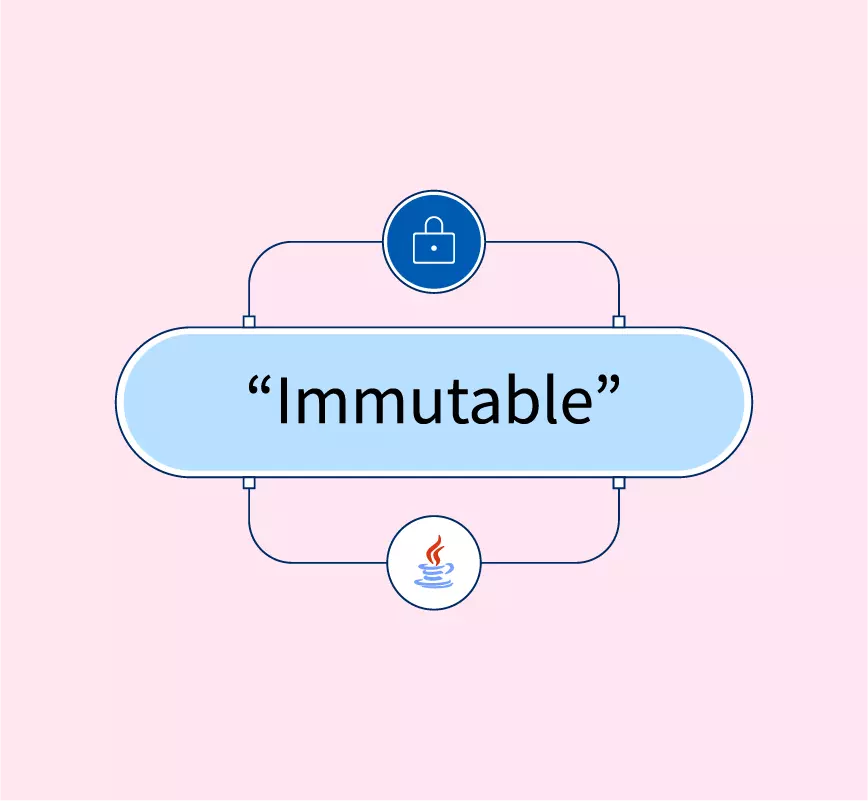Why Are Strings Immutable in Java? Trick Factors and Benefits Clarified
Why Are Strings Immutable in Java? Trick Factors and Benefits Clarified
Blog Article
Discovering the Benefits of Unalterable Strings in Modern Programs Paradigms
In the realm of modern-day shows standards, the concept of unalterable strings stands as a cornerstone of robust software application advancement. By adopting immutable strings, designers can make certain improved information honesty, improved thread safety, simplified debugging processes, boosted safety steps, and efficient performance optimization.
Enhanced Data Integrity

By stopping the modification of string things, immutability gets rid of the threat of unintended adjustments to the data they hold. This not only enhances the safety of the details however likewise boosts the reliability of the code that depends on these strings.
Immutability also sustains much safer multithreading settings, as concurrent access to unalterable strings does not posture the risk of data corruption via simultaneous adjustments. This home simplifies the process of dealing with strings in identical shows circumstances.
Basically, immutability acts as a protective guard around the data kept within strings, boosting their honesty by guaranteeing that once specified, their worths stay unchanged throughout the program's implementation.

Boosted Thread Security
Unalterable strings boost the string safety and security of programs by ensuring that once a string object is created, its worth can not be changed. This property removes the danger of simultaneous threads attempting to modify the same string simultaneously, which can bring about information corruption or irregular states in the program - Why are strings immutable in Java?. In a multi-threaded environment, where several threads access and manipulate data concurrently, the immutability of strings offers a level of safety by guaranteeing that the information stays unchanged throughout its lifecycle
Simplified Debugging Processes
Offered the enhanced string security assisted in by unalterable strings, a substantial benefit arises in the realm of simplified debugging processes. Unalterable strings, when developed, can not be changed, making it simpler to trace the circulation of data and identify the source of pests in a program. This immutability makes certain that strings stay consistent throughout the implementation of the program, lowering the possibility of unanticipated adjustments that might lead to mistakes.
When debugging with mutable strings, designers frequently run into issues where a string's value is changed unintentionally, making it testing to pinpoint the origin of a pest. Nevertheless, with unalterable strings, the information continues to be unchanged, permitting developers to focus on evaluating the actual reasoning of the code as opposed to tracking down where and when a string was customized inaccurately.
Additionally, unalterable strings streamline the debugging process by allowing easier recreation of pests. Considering that unalterable strings do not change state, developers can recreate and research bugs better, leading to quicker identification and resolution of problems within the codebase. This streamlined debugging operations eventually adds to greater software application top quality and enhanced general development performance.

Increased Security Measures
Enhancing information defense and fortifying system stability, the utilization of unalterable strings in software program applications contributes considerably to raised safety and security actions. Immutable strings additionally play a vital function in preventing common safety vulnerabilities such as barrier overflows and SQL injection attacks, as attempts to adjust string information at runtime are naturally restricted.
Moreover, the immutability of strings improves the predictability of program behavior, making it less complicated to confirm inputs and avoid unforeseen modifications that could jeopardize protection. This predictability simplifies the process of bookkeeping and validating code, allowing designers to determine prospective safety technicalities better. On the whole, integrating immutable strings click over here right into software growth methods not only enhances the toughness and dependability of applications yet also reinforces their resilience versus safety and security threats.
Efficient Performance Optimization
Structure upon the foundation of increased security procedures achieved through the usage of unalterable strings, an essential aspect to take into consideration in software growth is effective performance optimization. When dealing with mutable strings, operations like concatenation or substring development often cause the production of new string things, bring about memory expenses this article and enhanced handling time. Nonetheless, with immutable strings, these procedures can be enhanced to boost performance. By allowing strings to remain consistent and unchangeable, unalterable strings promote much better memory administration and caching opportunities, eventually boosting the total efficiency of the software.
Considering that immutable strings can not be customized as soon as created, they can be shared throughout strings without the danger of unanticipated modifications, minimizing the need for synchronization mechanisms and enhancing concurrency. Unalterable strings simplify debugging processes as programmers can trust that a string's worth will stay consistent throughout the program's implementation, removing possible errors triggered by mutable state changes.
Final Thought
To conclude, the benefits of using unalterable strings in contemporary shows standards can not be overemphasized. Boosted information integrity, boosted thread security, streamlined debugging processes, raised security measures, and efficient efficiency optimization all add to the overall effectiveness of programming jobs. By incorporating immutable strings into programming practices, programmers can take advantage of a much more durable and dependable codebase.
Immutability, an essential attribute of strings in shows languages such as Java and Python, makes sure that when a string things is created, it can not be modified or changed.Immutable strings boost the string safety of programs by making visite site certain that when a string things is produced, its value can not be modified. Immutable strings likewise play an important function in protecting against common safety and security susceptabilities such as barrier overflows and SQL shot strikes, as efforts to control string data at runtime are inherently restricted.
By allowing strings to stay continuous and stable, immutable strings help with far better memory monitoring and caching chances, ultimately increasing the overall efficiency of the software.
Unalterable strings simplify debugging procedures as developers can rely on that a string's value will certainly stay regular throughout the program's execution, getting rid of possible errors caused by mutable state changes.
Report this page